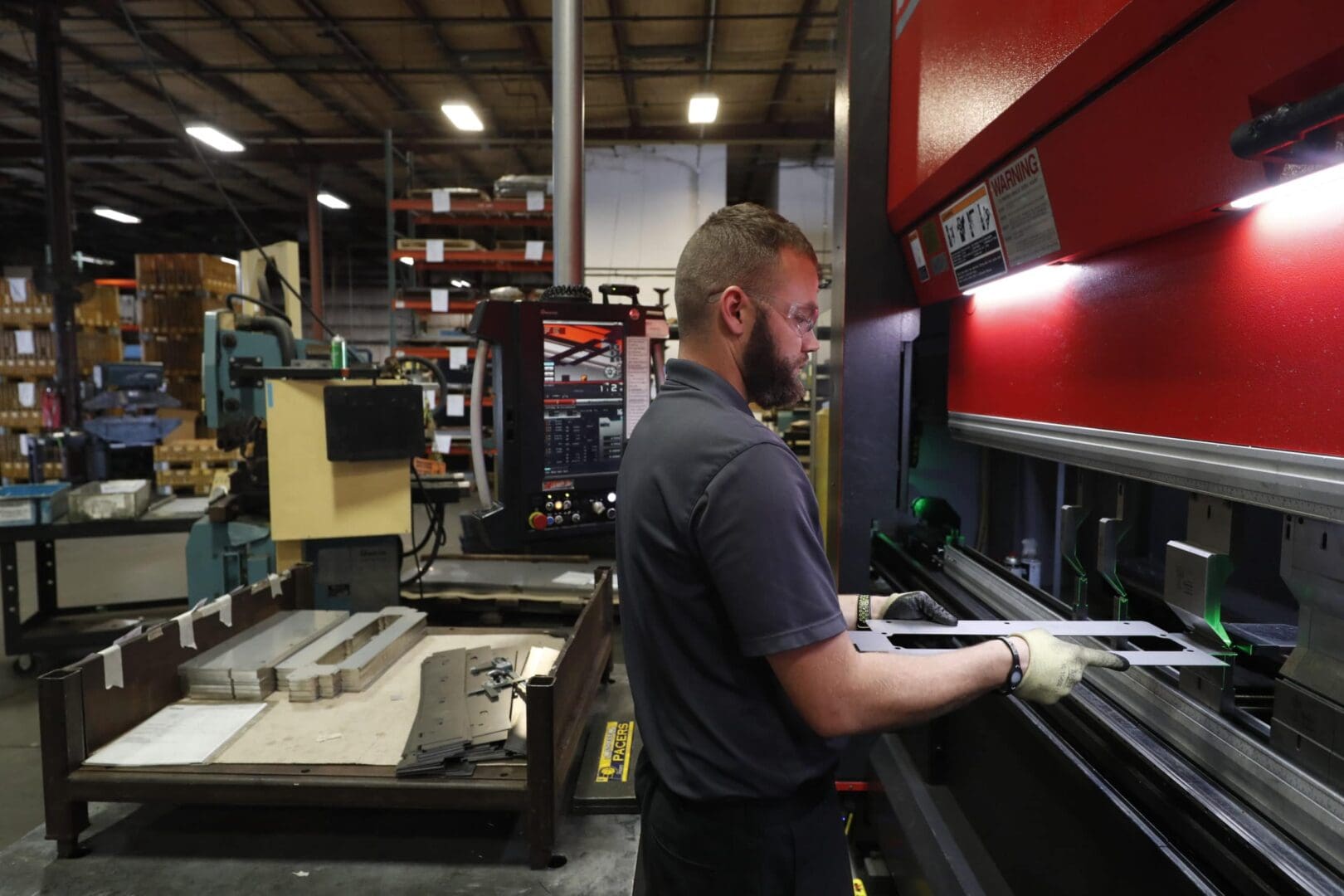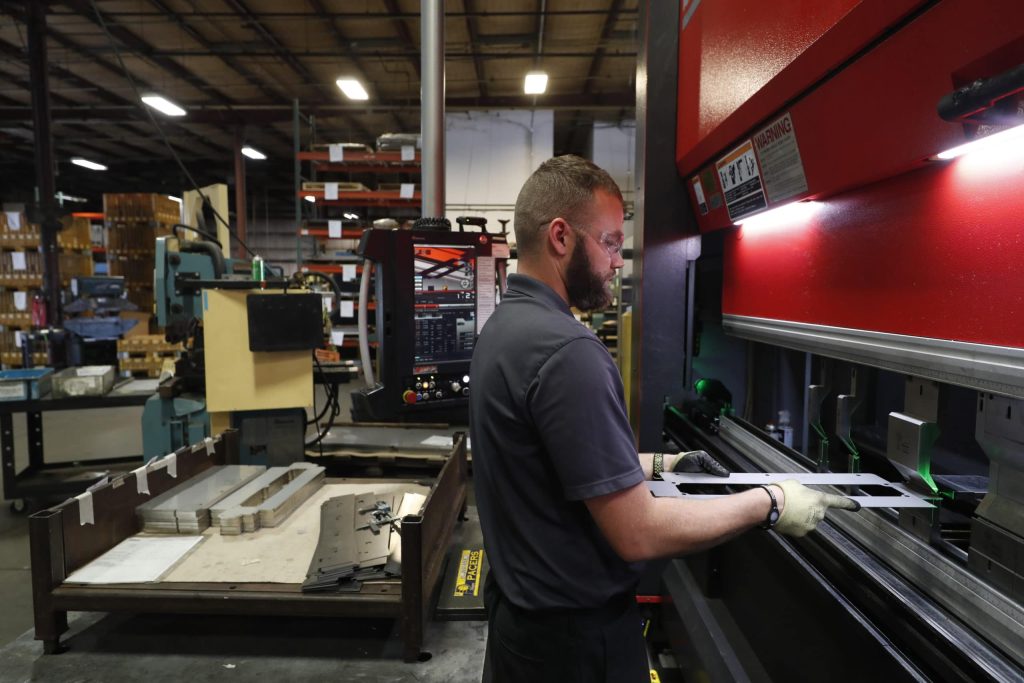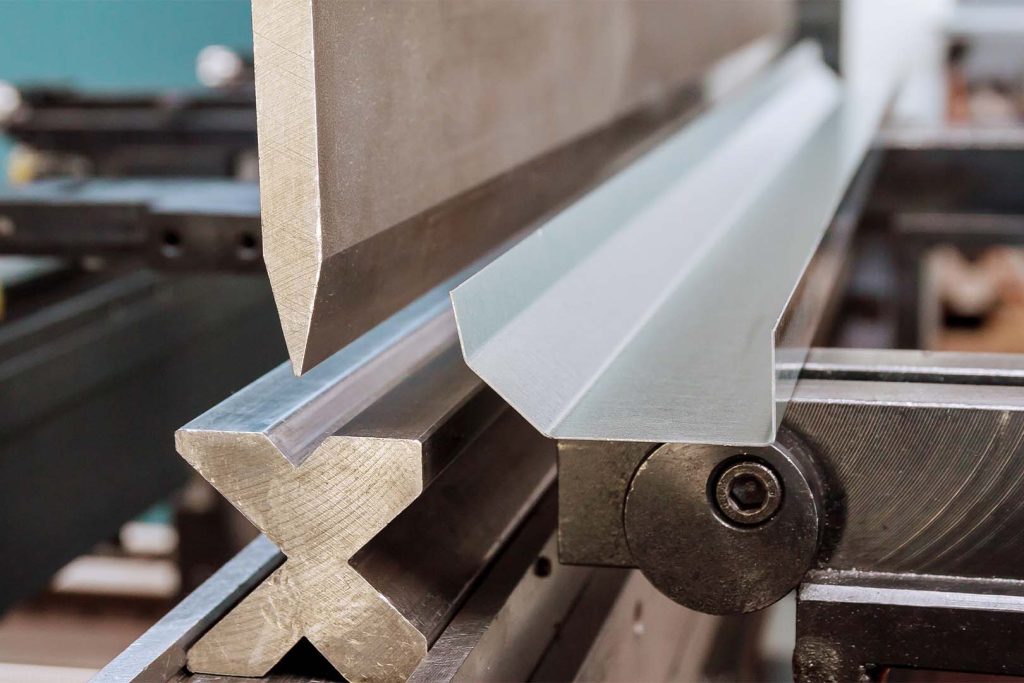Table of Contents
- What Does a Sheet Metal Fabricator Do?
- 1. Cutting and Shearing
- 2. Forming and Bending
- 3. Welding and Joining
- 4. Finishing and Surface Treatment
- 5. Quality Control and Inspection
- 6. Material Selection
- 7. Assembly and Installation
- 8. Versatility and Adaptability
- 9. Benefits of Sheet Metal Fabrication
- 10. Sheet Metal Fabrication Vs. Other Manufacturing Processes
- Frequently Asked Questions
Have you ever wondered how those intricate metal structures are made? From custom car parts to industrial machinery, sheet metal fabricators are the masterminds behind these creations.
A sheet metal fabricator is a skilled professional who specializes in transforming flat metal sheets into complex 3D structures. Through cutting, bending, shaping, and welding, they bring designs to life and create durable and functional products. Let’s take a closer look at what a sheet metal fabricator does and why their work is so important.
A sheet metal fabricator is responsible for cutting, shaping, and molding sheets of metal into various forms and sizes. They use a variety of tools and techniques, including welding, bending, and cutting, to create products such as ductwork, metal roofs, and gutters. Sheet metal fabricators may work in a variety of industries, including construction, manufacturing, and automotive. They must have a strong understanding of math, blueprint reading, and safety procedures to ensure the quality and safety of their work.
What Does a Sheet Metal Fabricator Do?
Sheet metal fabrication is an important industry that involves the production of various metal products through cutting, bending, and shaping processes. Sheet metal fabricators are skilled professionals who specialize in working with different types of metals to create complex structures and components for a wide range of applications. In this article, we will explore what sheet metal fabricators do and how they contribute to the manufacturing industry.
1. Cutting and Shearing
The first task of a sheet metal fabricator is to cut and shear the metal sheet to the required size and shape. This is done using specialized cutting tools such as plasma cutters, laser cutters, or CNC machines. The sheet metal fabricator must have a thorough understanding of the properties of the metal being cut and the cutting process to ensure that the finished product meets the required specifications.
After cutting, the metal sheet is sheared to remove any excess material or rough edges. This process involves using a guillotine or other shearing tools to cut the metal along a straight line.
2. Forming and Bending
Once the metal sheet has been cut and sheared to the required size, the sheet metal fabricator then bends and forms the metal into the desired shape. This process involves using specialized tools such as press brakes, rollers, and stamping machines.
The sheet metal fabricator must have a good understanding of the properties of the metal being formed and the forming process to ensure that the final product is of high quality and meets the required specifications.
3. Welding and Joining
Welding and joining are critical processes in sheet metal fabrication. The sheet metal fabricator must have extensive knowledge and experience in welding techniques, such as TIG, MIG, and spot welding. These techniques are used to join metal sheets together and create complex structures and components.
The sheet metal fabricator must also be proficient in using various welding equipment and tools, such as welding guns, electrodes, and filler metals. They must ensure that the welded joints are strong, durable, and free from any defects.
4. Finishing and Surface Treatment
The finished product must be aesthetically pleasing, and the sheet metal fabricator is responsible for finishing and surface treatment. This process involves polishing, sanding, and painting the metal to achieve the desired finish.
The sheet metal fabricator must be skilled in using various finishing tools and techniques, such as sandblasting, powder coating, and electroplating. They must ensure that the final product is free from any defects and meets the required specifications.
5. Quality Control and Inspection
Quality control and inspection are essential processes in sheet metal fabrication. The sheet metal fabricator must ensure that the finished product meets the required standards and specifications.
They must have a thorough understanding of quality control processes, such as ISO 9001, and be proficient in using various inspection tools and equipment, such as micrometers, calipers, and gauges. They must also be able to identify any defects or issues and take corrective action to ensure that the final product is of high quality.
6. Material Selection
The sheet metal fabricator must have a good understanding of the different types of metals available and the properties of each metal. They must be able to select the appropriate metal for the application, taking into account factors such as strength, durability, and cost.
They must also be able to work with a wide range of metals, including steel, aluminum, copper, and brass, and know how to handle and store each metal safely.
7. Assembly and Installation
The sheet metal fabricator must have a good understanding of assembly and installation processes. They must be able to read and interpret assembly instructions and work with other professionals, such as engineers and architects, to ensure that the finished product is installed correctly.
They must also be able to work with a wide range of tools and equipment, such as drills, saws, and rivet guns, to assemble and install the finished product.
8. Versatility and Adaptability
Sheet metal fabrication is a versatile and adaptable industry. The sheet metal fabricator must be able to work with a wide range of materials, tools, and equipment, and be able to adapt to changing requirements and specifications.
They must also be able to work in a variety of environments, including workshops, factories, and construction sites, and be able to work independently or as part of a team.
9. Benefits of Sheet Metal Fabrication
Sheet metal fabrication is a critical industry that provides a wide range of benefits. It is a cost-effective way to produce high-quality metal products, and it can be used to produce a wide range of structures and components for various applications.
Sheet metal fabrication is also environmentally friendly, as it reduces waste and promotes recycling. It is a sustainable industry that contributes to the growth and development of the manufacturing sector.
10. Sheet Metal Fabrication Vs. Other Manufacturing Processes
Sheet metal fabrication is a unique manufacturing process that offers several advantages over other manufacturing processes. It is a cost-effective way to produce high-quality metal products, and it can be used to produce a wide range of structures and components for various applications.
Sheet metal fabrication is also versatile and adaptable, and it can be used to produce complex structures and components that would be difficult or impossible to produce using other manufacturing processes.
In conclusion, sheet metal fabrication is an important industry that requires skilled professionals who can work with a wide range of metals, tools, and equipment. Sheet metal fabricators play a critical role in the manufacturing process and contribute to the growth and development of the manufacturing sector.
Frequently Asked Questions
Sheet metal fabrication is an essential process for many industries, including construction, automotive, and aerospace. If you’re not familiar with what a sheet metal fabricator does, read on to learn more.
What is sheet metal fabrication?
Sheet metal fabrication is the process of transforming flat sheets of metal into specific shapes and products. This can include cutting, bending, welding, and assembling the metal to create everything from automotive parts to HVAC systems. Sheet metal fabricators often work with a variety of metals, including steel, aluminum, and copper.
The process of sheet metal fabrication requires a high level of precision and attention to detail. Fabricators must be skilled at reading technical drawings and using specialized equipment to create products that meet strict specifications.
What does a sheet metal fabricator do?
A sheet metal fabricator is responsible for creating metal parts and products according to specific designs and requirements. This can involve using computer-aided design (CAD) software to create technical drawings, cutting and shaping metal using various tools and machinery, and welding or joining pieces together to create finished products.
Sheet metal fabricators also need to be familiar with different types of metals and their properties, as well as different welding and cutting techniques. They may work in a variety of settings, from small workshops to large manufacturing plants, and may specialize in particular types of products or industries.
What skills do you need to be a sheet metal fabricator?
To be a successful sheet metal fabricator, you need a combination of technical and practical skills. You should be good at math and be able to read technical drawings, as well as have experience using various types of tools and machinery. Attention to detail is also essential, as even small mistakes can have a significant impact on the final product.
In addition to technical skills, sheet metal fabricators should also have good communication skills and be able to work well in a team. They may need to collaborate with engineers, designers, and other professionals to ensure that products are created to the right specifications and standards.
What are some common products made by sheet metal fabricators?
Sheet metal fabricators can produce a wide range of products for different industries. Some common products include HVAC systems, automotive parts, machinery components, and metal enclosures for electronics. They may also create custom products for specific projects or clients, such as decorative metalwork or specialized components for scientific equipment.
The products created by sheet metal fabricators must meet strict standards for quality and durability. This requires a high level of skill and attention to detail, as well as a thorough understanding of the properties and characteristics of different types of metals.
What is the outlook for sheet metal fabrication jobs?
The outlook for sheet metal fabrication jobs is generally positive, with steady demand for skilled workers in this field. According to the Bureau of Labor Statistics, employment of sheet metal workers is projected to grow 1 percent from 2019 to 2029, about as fast as the average for all occupations.
As new technologies and materials continue to emerge, sheet metal fabricators will need to stay up-to-date with the latest techniques and equipment in order to remain competitive in the job market. However, for those with the right skills and experience, there should be plenty of opportunities in this field for years to come.
In conclusion, sheet metal fabrication is a highly skilled trade that requires specialized knowledge, attention to detail, and creativity. Whether working on a small project or a large-scale industrial production, sheet metal fabricators play an essential role in bringing ideas to life. With their expertise in metalworking techniques and materials, they are able to create custom parts and products that meet the specific needs of their clients.
Beyond their technical skills, sheet metal fabricators also need to have strong problem-solving abilities and excellent communication skills. They must be able to work closely with designers, engineers, and other professionals to ensure that their products meet the required specifications and are delivered on time and on budget.
Overall, a career in sheet metal fabrication can be highly rewarding for those who have a passion for working with their hands and creating something from scratch. With the right training and experience, sheet metal fabricators can enjoy a fulfilling career that allows them to use their creativity and technical expertise to make a real difference in the world of manufacturing.
Request a quote today!
Please compress the file into a ZIP or RAR file before uploading. Alternatively, send through your RFQ by email.
enquires@unitymanufacture.com




